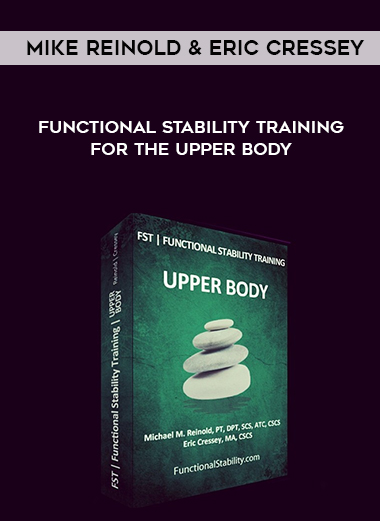SalePage : Machiavelli – The Prince
Audio book in mp3 format
Audiobook file size: mp3
Since the book’s publication in 1532, readers’ opinions on The Prince and its author, Niccol Machiavelli, have been highly divided. Machiavelli was distinguished in his day as the creator of chronicles, poetry, and plays (including a widely produced popular comedy). He was a statesman who represented Florence on foreign missions and published reports that were acclaimed for their elegance and substance. However, the Catholic Church condemned Machiavelli for his attack of Christianity as well as the tone and content of his political advice, particularly in The Prince. By the seventeenth century, the name Machiavelli had come to be associated with devilish cunning, a connotation that it still bears today. Modern readers feel the same way about Machiavelli, acknowledging him as a predecessor of political science while also recoiling from the merciless ideals he regularly articulates. The Prince is the source of Machiavelli’s beliefs as an imaginative modernist and a cynical politician.
Machiavelli authored The Prince in 1513, shortly after fleeing Florence as a political exile. The book, dedicated to Lorenzo de’ Medici, is Machiavelli’s counsel to Florence’s present king on how to maintain power. It was also his fruitless attempt to seek a position as an advisor in the Medici government. It took five years after Machiavelli’s death for The Prince to be published. Machiavelli’s views have been studied, analyzed, and argued by leaders as different as Oliver Cromwell, Frederick the Great, Louis XIV, Napoleon I, Otto von Bismarck, and John F. Kennedy.
Machiavelli’s dissertation clearly departs from the Western tradition of political theory that came before him. This tradition’s philosophers, beginning with Plato and Aristotle, were concerned with concerns of justice and human pleasure, as well as the formation of the ideal state. Until the final chapter, The Prince is a startlingly straightforward how-to guide for rulers seeking to establish and maintain control of a new state or take and dominate an existing one. Machiavelli bases his political counsel on real-life instances rather than ethical or intellectual concepts. Machiavelli uses the behaviors of well-known historical and present leaders, both successful and failed, to show what a prince should and should not do in pursuit of his aspirations. Machiavelli clearly seeks to provide an unemotional study of genuine human behavior and the uses of power throughout The Prince. “I have felt it proper to describe things as they are in a true reality, rather than as they are imagined,” Machiavelli writes of a prince’s behavior toward his subjects (p. 49).
It is arguable if Machiavelli’s perspective of human nature and the social environment is accurate. Is Machiavelli merely being impartial and clear-sighted, or is he creating fictitious reasons for the darkest instincts of people seeking power? The outcomes of deeds are what important in The Prince. Murder, encouragement of civil wars, the buying of temporary allegiance, and treachery are all permissible—indeed, encouraged—if they help the prince achieve and maintain power. According to Machiavelli, the maintenance of the state justifies such measures since the state is required to preserve the people’s security, peace, and order. He juxtaposes the prince’s goals and the people’s need for order, seeing the two as complimentary. Perhaps they are, but this equation might also be a self-serving strategy for people seeking power to justify abuses. To what degree Machiavelli’s means in The Prince are justified by the aims, and if the means genuinely bring about the ends, questions remain unanswered.
Machiavelli’s assessment of his time’s Italy—”leaderless, lawless, crushed, despoiled, torn, overrun” (p. 83)—underpins his counsel in The Prince. It also inspires him to conclude his book with a “Exhortation to Liberate Italy from the Barbarians.” Machiavelli asks for “a new prince…to institute a new order” (p. 82) to restore unity and stability to the Italian peninsula’s often warring city-states. Machiavelli becomes more utopian and favorable toward a kind of government that gives citizens a say in this section of The Prince and in several of his other writings. In his Discourses, Machiavelli depicts the ideal government as a republic that permits opposing parties to talk openly.
Machiavelli thus lays the ground for a long-lasting debate among his readers. Is he better viewed as a seeker of harmony and peace who wants his guidance to be practical and effective? Is he an opportunist, assisting and comforting would-be tyrants? Do the moral and political aims outlined in The Prince’s last chapter justify the methods advocated in the preceding chapters? These concerns are likely to linger as long as Machiavelli’s work retains a major role in modern political theory.
NICCOL MACHIAVELLI INFORMATION
What we know about Niccol Machiavelli’s (1469-1527) personal nature contradicts the treachery suggested by the word derived from his name. According to the evidence, Machiavelli was a fine parent and husband who lived in affectionate concord with his wife, Marietta Corsini, who bore him six children. Machiavelli was a staunch republican throughout his life. As an accomplished senior administrator and diplomat, he served Florence with unwavering patriotism. But his unwavering devotion to the republic of Florence came to an end when Pope Julius II’s Holy League army restored the Medici family to power as beneficent despots of the city. Machiavelli not only lost his post in the city administration as a result of the political cleansing, but when a plot against the Medicis was discovered in early 1513, he was also accused of participation solely because his name was on a list recovered from the conspirators. Machiavelli was imprisoned and subjected to torture that compelled blameless persons to confess their crime, but he maintained his innocence and was finally released.
Reduced to poverty and with his movements restricted in the city, Machiavelli sought sanctuary at the little estate he inherited from his father outside Florence. Not only did he complete The Prince there between the spring and fall of 1513, but he also wrote a number of political comments and chronicles, as well as a number of highly-received literary works. Following the death of Pope Julius II in 1513, the son of Lorenzo de’Medici (known as the Magnificent) became Pope Leo X—one of three popes produced by the Medici dynasty. Machiavelli hoped that by dedicating The Prince to Lorenzo de’Medici, son of the most famous of all the Medicis, he would secure a position that would allow him to return to public life. That expectation was dashed. Machiavelli died in exile from Florence at the age of 58.
QUESTIONS FOR DISCUSSION
Why does Machiavelli use examples of genuine historical and present rulers to illustrate his arguments? What is the significance of his “long knowledge with modern issues and a continual study of the ancient world” (p. 1)?
Is The Prince’s view of justice limited to the interests of the powerful?
Machiavelli recognizes what restrictions on a prince’s freedom of action.
Is Machiavelli of the opinion that ethical concerns play a part in a prince’s behavior?
What roles do fate and fortune play in human existence, according to Machiavelli?
Is Machiavelli of the opinion that political entities are formed by humans or that they exist naturally?
To what degree should a prince be motivated by the happiness of the people in safeguarding the state?
Why does Machiavelli think a prince must be willing to use force to attain his goals?
Do moral aims justify immoral means, according to Machiavelli?
What does Machiavelli mean by virtue?
Why does Machiavelli conclude his treatise by pleading with the House of Medici to liberate Italy?
ADDITIONAL REFLECTION
Under what conditions may someone tasked with upholding the law justify breaking it?
Is it necessary for political power to constantly be a corrupting effect on those who wield it?
TITLES RELATED TO
Old Testament: I Samuel and I Kings; Matthew 22 (New Testament)
These Bible texts address the conflicts between religious and political allegiances.
Politics, Aristotle
Book V, on the maintenance of political authority, is an especially relevant precursor to Machiavelli in this investigation of the ideal state.
Leviathan by Thomas Hobbes (1651)
The author paints a bleak picture of human beings in their natural state, which serves as the foundation for his claim that a nearly omnipotent government is required to ensure a basic degree of justice and fundamental liberties.
Chapter 14 of John Locke’s The Second Treatise of Civil Government (1690) analyzes the conditions under which the government might act in violation of the law or in the absence of the law. The right of the people to depose a king or government when either has misused his authority is addressed in Chapter 19.
“The Federalist No. 10,” by James Madison (in The Federalist) (1787-88)
This article discusses the issue of factions that unavoidably form among citizens, as well as methods for mitigating their negative consequences without intruding on liberty.
The Statesman, Plato
This conversation, one of Plato’s main works of political philosophy, investigates the nature and morality of a monarch or politician.














Reviews
There are no reviews yet.